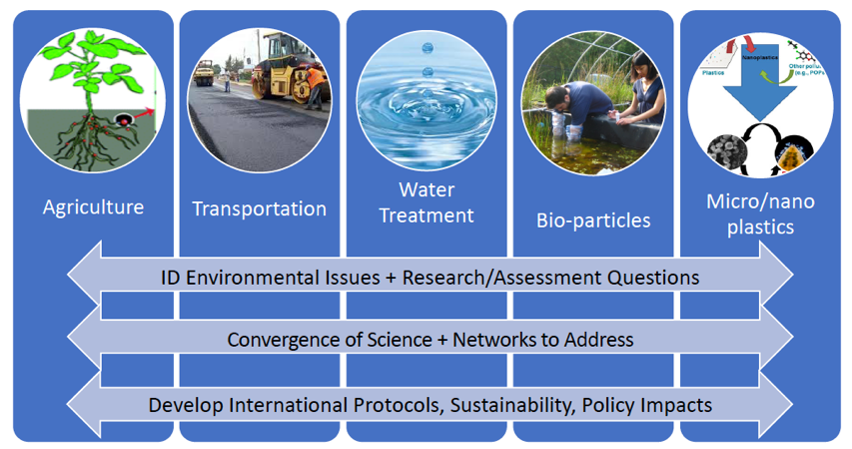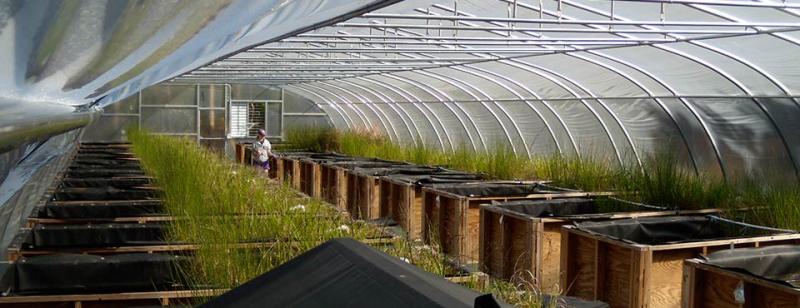The International Network for Researching, Advancing, and Assessing Materials for Environmental Sustainability (INFRAMES) leverages the substantial investments in US and EU networks in the area of environmental nanotechnology to assemble a coordinated international community of researchers dedicated to assessing the sustainability of the materials our society produces.
INFRAMES includes 18 US universities associated with the Center for the Environmental Implications of NanoTechnology (CEINT) and the Center for Sustainable Nanotechnology (CSN), along with networks representing over 100 participating EU and UK partners, the Kwame Nkrumah University of Science and Technology (KNUST) in Ghana, and researchers at six synchrotron X-ray facilities in four countries.
Vision
INFRAMES will accelerate U.S. research activities in the area of assessing the sustainability of materials by nurturing fundamental advances in our understanding of surface interactions, nano-bio behavior, and particle transformations.
INFRAMES activities will vastly expand the network and career paths for students, postdocs, and early-career researchers by immersion in a diverse culture and innovative system of international convergence science, with international lab rotations, targeted education and training opportunities in protocol development and interoperable informatics platforms, and involvement in collaborative research. Through these initiatives, INFRAMES will ensure continued US engagement and cutting-edge workforce training across the international scientific community in materials sustainability.
Challenge Areas
INFRAMES catalyzes novel research in the development and assessment of technologies addressing critical elements of the United Nations Millennium Development Goals. Specifically, INFRAMES focuses on the following five materials-related challenges or applications:

- Particle-based delivery systems for nutrients and pesticides in agricultural applications
- Materials used in transportation
- Advanced materials for resource recovery and water treatment
- Engineered and incidental bio-particles
- Consequences of micro/nano plastics
Boundary Objects
INFRAMES collaboration converges around four key resources that function as boundary objects in the context of convergence research. These boundary objects link each collaborator to a collective larger goal, providing a shared context to integrate diverse methods, language, concepts, and data collection formats into a shared understanding of the broader materials challenge questions and the respective contribution of each field. These resources are:
- Spectroscopy and imaging facilities;
- Mesocosm and ecotoxicity facilities for the investigating particulate materials in complex systems;
- Informatics platforms for novel materials, and
- Modeling platforms for predicting the fate, behavior, and impacts from particulate materials in the environment.

